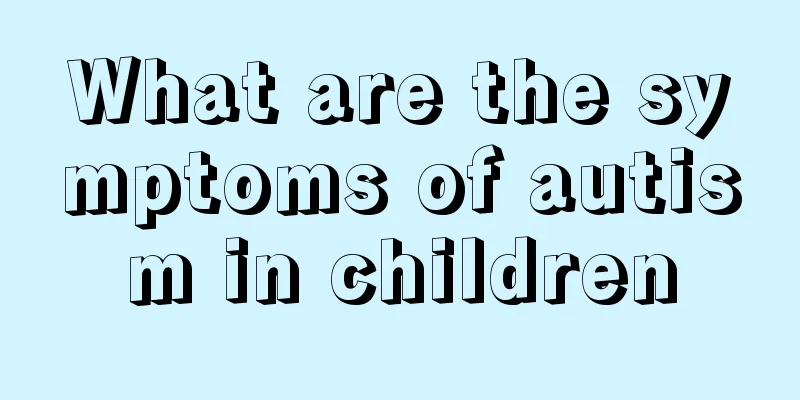How many months does it take for a newborn to start teething?

|
Having a child in the family really adds a lot of joy. Many parents are paying attention to the growth of their children, and many parents are concerned about how many months it will take for a newborn to start teething. We know that the teeth growth of newborns also follows a certain order. Today we have authoritative experts in this field here, let’s listen to what they say about this! I hope that new parents can understand this issue. The eruption of baby's deciduous teeth follows such a physiological law: eruption at a certain time, growth in a certain order, and symmetrical development of the left and right teeth. Generally speaking, baby's deciduous teeth begin to erupt when they are 6 to 7 months old. However, some babies will grow deciduous teeth 4 months after birth, while some babies will not grow them until 10 months after birth. This is all normal. The order in which your baby's teeth grow: 1. Central incisor: 6 months for mandibular; 7.5 months for maxillary 2. Lateral incisors: mandibular 7 months; maxillary 9 months 3. First deciduous molars: mandibular 12 months; maxillary 14 months 4. Canines: 16 months for lower jaw and 18 months for upper jaw 5. Second deciduous molars: mandibular 20 months; maxillary 2 years Some of the things your baby may do when they are teething include: drooling, rash on the chin or face, mild coughing, chewing, pain, irritability, refusing to eat, diarrhea, mild fever, insomnia, bleeding gums, and pulling on the ears. Normal babies start to grow teeth at an average age of six months, adding one tooth per month, and have six teeth at about one year old (twelve months). All twenty deciduous teeth will have grown in around the age of two and a half. However, if the baby has not grown deciduous teeth by the age of one, there may be some abnormality in the body. The late eruption of baby's deciduous teeth may be caused by two reasons: 1. Trauma may cause gingival hypertrophy, making it difficult for deciduous teeth to penetrate; 2. The baby may suffer from rickets. Due to the lack of vitamin D, the calcium and phosphorus metabolism in the body is abnormal, which leads to slow development of tooth germs and delayed eruption of deciduous teeth. 3. If the baby suffers from hypothyroidism, endocrine disorders, or lack of growth hormone, the eruption of deciduous teeth may be affected. 4. You should also pay attention to whether the baby's deciduous teeth erupt too late due to congenital tooth loss. You can take the baby to the hospital for an X-ray. If it is caused by hypertrophy of deciduous teeth, the gums can be surgically cut to help the deciduous teeth erupt. 5. If the late eruption of deciduous teeth is caused by systemic diseases, the cause should be identified as soon as possible with the help of a doctor, and the eruption of deciduous teeth should be promoted on the basis of symptomatic treatment. Nutrition for babies during teething: 1. Protein is the main structural component of cells. If protein intake is insufficient, it will cause uneven teeth, delayed tooth eruption, periodontal tissue lesions, and easily lead to the occurrence of dental caries. 2. Vitamin A can maintain the integrity of epithelial cells throughout the body. Without it, the epithelial cells will become over-keratinized, leading to delayed teething in babies. When vitamin A deficiency affects the development of enamel cells, the color of the teeth will turn chalky. 3. Lack of vitamin C can cause poor tooth development, tooth bone atrophy, and gum edema and bleeding. 4. The function of vitamin D is to increase the absorption of calcium and phosphorus in the intestine and promote the deposition and calcification of calcium and phosphorus on the tooth germs. Once it is deficient, tooth eruption will be delayed, the teeth will be small and the gaps between teeth will be sparse. Now everyone should have a deep understanding of the question of how many months it takes for newborns to grow teeth. Parents should observe whether their children have grown teeth at the corresponding time. If the teeth still haven't grown after a long time, you need to pay more attention. It is best to take it to the hospital and listen to the doctor's advice on how to deal with it. This is the most reliable way. |
<<: What are the reasons why babies always sweat?
>>: How many months does it take for a newborn to start teething?
Recommend
What to do if a little boy has a long foreskin
Now more and more parents are beginning to pay at...
What are the reasons why babies sweat a lot when sleeping?
The baby's health affects the entire family. ...
Children's B vitamins
Vitamins are essential trace elements for the hum...
What are the causes and precautions for eczema in four-year-old babies?
Children are the apple of the eye in the family, ...
What should I do if my baby makes phlegm sounds when breathing while sleeping?
Under normal circumstances, the baby's breath...
Sinusitis medication for children
Children's bodies are very weak and because o...
What should I do if my two-year-old child has a fever of 39.5 degrees?
The reason why many babies have fever is mostly c...
How can children with spleen deficiency grow taller?
With the continuous development of society, child...
What to do if your child has severe sinusitis and headache
Sinusitis is very common in children, but the sym...
What are the treatment methods for myopia in primary school students?
The incidence of myopia among primary school stud...
What movements can a 4-month-old baby do?
Every change in the baby after birth is watched b...
Preventive nursing of neonatal adrenal hyperplasia
When caring for newborns, parents must do so comp...
Nine foods to help children enhance immunity
When winter comes, many parents will worry that t...
The best time for babies to learn to eat
Generally, you can try to add some complementary ...
What should children with poor resistance eat to improve their immunity?
When children are first born, their organs are no...









